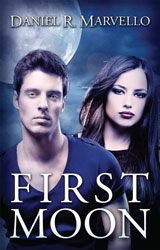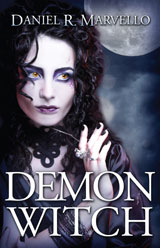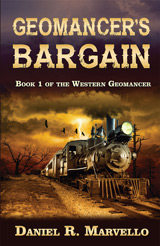My little corner of the Internet has been awash lately with news and opinions related to a few famous authors who have been “busted” for using reviews questionably. The commentary has ranged in tone from outraged to unconcerned.
What happened is that a few authors have admitted to, or were proven to be, engaging in the following behaviors:
- Paying for positive reviews of their books
- Using “sock puppet” (false) accounts to write positive reviews of their own books
- Using sock puppet accounts to write negative reviews of competing books.
I have a rather conservative viewpoint when it comes to business ethics, but I’m not going to address this subject from that perspective. Instead, I think there are practical arguments against the above practices that serve perfectly well.
The Purpose of Book Reviews
For readers, the purpose of a review is to help them decide whether or not they should buy the associated book. Readers expect reviews to come from other readers who provide an honest assessment of their reading experience.
Meanwhile, most authors understand that reviews are a form of publicity for their books. As such, it can have a big impact on book sales. Because reviews relate to profits, some authors are tempted to turn reviews into a form of marketing: if good reviews help sell more books, do what you can to make sure you have good reviews.
The practical problem with turning reviews into marketing is that you run the risk of changing the perception of readers. If readers start to believe that reviews are a form of advertising, they will trust them about as much as they trust other forms of advertising, which is to say, not much at all.
I believe that defeating the purpose of reviews by “faking” them in any of the aforementioned ways erodes their value to readers. Every author who engages in these activities is effectively voting to turn reviews into advertising. I refuse to support that transition.
Disclosure
Here are a few more ways that authors may defeat the purpose of reviews:
- Encouraging friends and family to post favorable reviews
- Exchanging reviews with other authors
- Giving away copies of their books for review purposes
What makes these activities questionable is that they involve a relationship between the author and the reviewer. In some cases, the resulting review will not be an honest assessment of the reading experience, because it will be influenced by the relationship.
However, some authors point out that their family members and friends insist on posting a review. These people are readers too, and they don’t think it’s fair that their opinion “doesn’t count.”
Additionally, writers tend to hang out with other writers, and they read each other’s work. Is the review of a fellow writer’s book influenced by the reviewer’s friendship with the author? Maybe or maybe not, but I would say probably. If the fellow writer didn’t like the book, he or she probably wouldn’t write a review at all. If you are an author, every book review you write can potentially be seen as a conflict of interest for one reason or another.
There’s an easy way to handle all of these situations: full disclosure. If you ask that everyone who posts a review discloses their relationship with you at the top of the review, other readers can decide for themselves as to how much weight they are willing to give the review. At worst, disclosure makes the review a kind of testimonial, and I would argue that testimonials are closer to publicity than they are to advertising.
Manipulating Negative Reviews
Another controversial review system manipulation tactic is when authors try to get negative reviews removed (or modified) by the hosting site or the reviewer. They harass the reviewer by commenting on the review, which sometimes causes the reviewer to remove the review or modify it. Not only is the author ruining the honest assessment originally provided by the reviewer, but this practice can cause readers to stop reviewing altogether to avoid potential conflicts: both results subvert the review system.
Granted, negative reviews are sometimes left by people who did not even read the book and whose only purpose is to damage the credibility of the author or hurt the sales of the book. These reviews are often in violation of the hosting site’s terms of service, and can be legitimately removed. Again, these reviews are subversions of the review system.
My Conclusions
All authors have to decide what is the right thing to do based on our own code of ethics. After careful consideration, here are the rules I’ve come up with for myself:
- Reviews are for readers and I shouldn’t mess with them. I may read them, but I will not comment on them.
- I will only attempt to remove reviews that are clear violations of the Terms of Service related to the hosting site, never just because I didn’t like the review.
- I will not pay for reviews.
- I will not write a review of my own book.
- I may give away books for the purpose of review, but only if I honestly don’t know whether the resulting review will be positive or negative, and I will ask reviewers to disclose that they received the book from me for free.
- I hereby request that reviewers who know me in any capacity disclose that relationship at the top of their review.
- Going forward, I will disclose my relationship (if any) with other authors whose books I review.
There is one activity that I feel compelled to denounce: Leaving a false negative review of another author’s book. I don’t see any way that intentionally bashing another author’s work for the sole purpose of harming their sales (and hopefully improving your own) can be defended as ethical behavior.
On the contrary, I have found that working with other authors on promotion activities is an effective way to support each other’s work and improve sales for all involved. It has also turned out to be a great way to make new friends. 🙂










Great post. I think your review rules are quite sensible and just, especially any that relate to astroturfing –an unforgivable sin, in my opinion. The one about requesting that reviewers identify their relationship with the author, while desirable, might be tough to "enforce," however.
On a side note: As a reader and potential buyer, I always assume that a few of any author’s raves are from friends, family members, etc. and I’m okay with that. Those tend to show up uninvited, anyway. The key is to examine the balance of the reviews for their content — interesting description of the book with a quibble or two mentioned = valid review. Effusive gushing or spiteful commentary = invalid review.
Thanks for visiting, Roger. Good to "see" you!
I agree that disclosure is a tough one. As you say, many of the reviews we get from people we know are uninvited. I no longer ask for reviews. It’s not that I don’t want them, I just don’t want anyone to feel pressured into giving me one. (You can just tell what a great marketer I am.)
Your comments about valid/invalid reviews are well taken. I believe readers are smart enough to spot the shills and the trolls. I’m not much of a review reader, but I apply the same filters you described when I do read them.
I have always noted on my reviews how I obtained the book: whether I purchased it myself, got a review copy from the author, or traded with another author. I completely agree with you about full disclosure.
It would probably be more difficult for me to review the work of someone who I had a relationship with if it wasn’t already so darned difficult to review a book in the first place. I’m a nice guy, so I always try to cast things in the best light that I can. I’m also a very picky reader, which means that if I even finish a book, it’s got to be pretty good — because I’ll drop a bad one like a hot potato.
The frightening problem, I fear, is how corrupt the review process has already become. We now know, for instance, that John Locke’s "How I Sold A Million e-Books" is a load of, well, horse manure. How many of the so-called "best-selling" indie authors have taken this easy way out because they were too lazy (or too morally bankrupt) to do things the honest way?
Worse — what does the fact that it WORKED say about the reader/consumer, who obviously fell for this trap hook, line and sinker?
I’ll tell you what it says about the reader/consumer who falls for the fake review trap: they are far too trusting. [Cue image of Governor Tarkin about to blow up Alderaan.]
I don’t have much hope for it, but it would be nice if we could mend the review system before readers completely lose faith in it.
I’m like you when it comes to reviews. If I don’t like a book, I usually won’t finish it. If I do finish it, I certainly won’t go out and tell the world that it is a piece of junk. I can report that my tastes are often at odds with other readers, and I would not want to ruin someone else’s chance of finding their favorite book of all time just because I didn’t like it.
My contribution to the review system is honest, but rather one-sided.